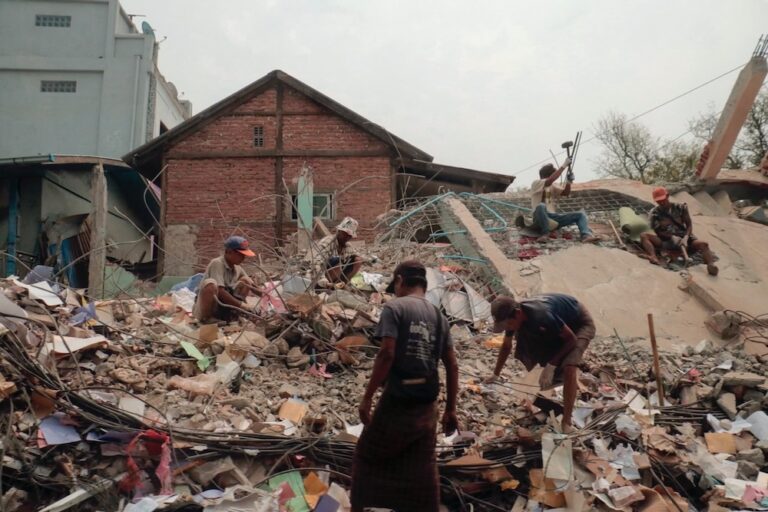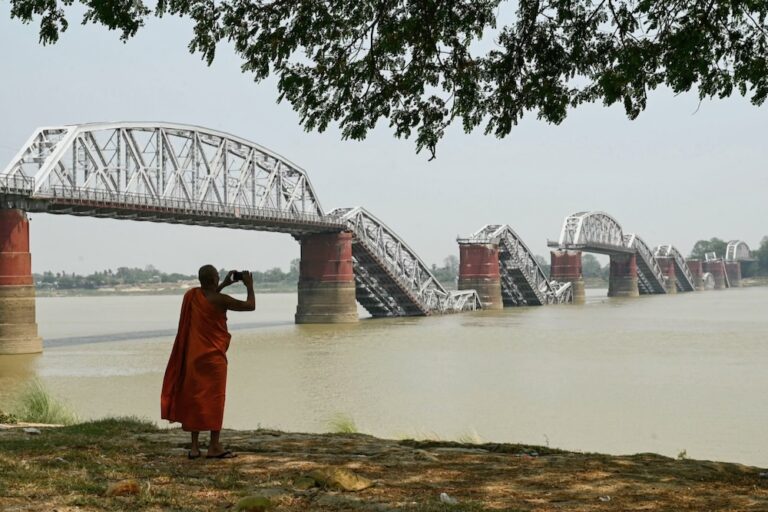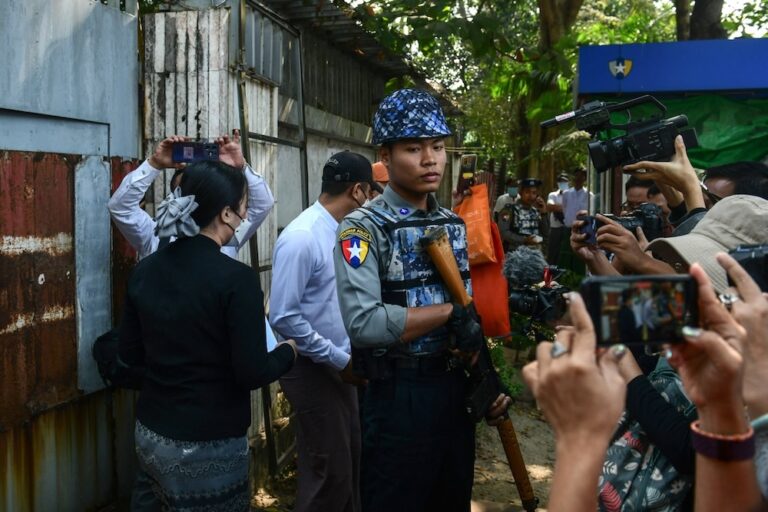Recommendations coming out of two town hall meetings in Burma touch on issues related to media law, self-regulation of the media and professional capacities of journalists.
(SEAPA/IFEX) – 12 November 2012 – SEAPA initiated two ‘town hall meetings’ in Myanmar – one in Yangon on 23-24 September and one in Mandalay on 26 September – with the aim of providing support for the media community to empower themselves in lobbying for a free media legal environment in Burma. These activities were organized within the context of the considerable expansion of press freedom in the country, including the end of pre-publication censorship, and the announcement of the drafting of a new press/media law.
The following document summarises the recommendations and inputs from the two Town Hall Meetings organized in Yangon and Mandalay and attended by 90 working journalists, discussing issues related to media law, self-regulation of the media and professional capacities of journalists.
8 November 2012
Recommendations for Strategic Interventions in the current media and political landscape in Myanmar
Background
The purpose of this paper is to summarise the recommendations and inputs from the two Town Hall Meetings organized in Yangon and Mandalay and attended by 90 working journalists, discussing issues related to media law, self-regulation of the media and professional capacities of journalists. Together with the Guidance for Journalists on Promoting an Empowering Press Law, this document can be useful for media community in the preparation stage and the drafting process of Myanmar’s media law and in this transition period.
To date, the openness that has been pledged by the government offers both a challenge and opportunity for the Myanmar media community to expand and broaden the exercise of press freedom and freedom of expression. It is vital for the media community to be able to advocate for strong guarantees and protection for the media, within and outside the legal framework, during this transitional period, towards ensuring the best outcome for an enabling environment.
In responding to the changing political and media landscape in Myanmar, the Southeast Asian Press Alliance (SEAPA) supported initiatives to gauge the concerns and capacity of the media community in relation to the proposed media law and self-regulation suggestions. SEAPA initiated two ‘town hall meetings’ in Myanmar – one in Yangon on 23-24 September and one in Mandalay on 26 September – with the aim providing support for the media community to empower themselves in lobbying for a good media legal environment in Burma. This activity was organized within the context of the considerable expansion of press freedom in the country, including the end of pre-publication censorship for privately-owned weekly news publications, and the announcement of the drafting of a new press/media law.
Feedback and Recommendations
The following feedback and recommendations are based on the outcome of the two meetings held in Yangon and Mandalay, and inputs from experts in the Southeast Asia region.
1. Priorities for the Interim Press Council
Considering the roles prescribed to the Interim Press Council, and given the limited resources and time that it has (one year), it is recognized that the IPC can be under great pressure to meet its obligations within the time frame. Given the uncertainty surrounding the legal framework to support and sustain the state promise of a freer media environment, it is proposed that the council prioritizes obtaining stakeholder feedback on the strategies for the promotion and protection of media freedom, including the development of a professional code of ethics, capacity building plans for the profession and recommendations on the appropriate legislative framework for the practice of media in the country.
The IPC is well-placed to conduct consultations, not just with the media community, but also civil society and representatives of various public groups and communities.
In carrying out its tasks, the council may consider working in phases:
PHASE 1:
Play a central role in the consultation process (as the secretariat) of the legislative revisions to consolidate the views and position of the media community, and
Works closely with the existing press associations to ensure that the exercise of the rights, safety and professional/ethical standards are adequately articulated
PHASE 2:
Prepare the framework and mechanism for self-regulation and the related complaints adjudication process
Plan and recommend the professional training program for journalists
2. Public consultation on laws and policies that affect the media
Parties involved in organising discussions or negotiations regarding law reforms that affect the media, such as the IPC (which can be a focal point or secretariat) or the journalists’ organizations, may consider some fundamental principles to ensure that the public consultation is effective.
A. INCLUSIVENESS:
The consultation to get the feedback on the scope and significance of the laws and policies must be inclusive and horizontal given the media landscape, which is not only drawn along the lines of national and division-level institutions but also the various ethnic communities and gendered interests. Representatives of professional groups such as the judiciary, the legislature, academics, lawyers, human rights defenders and consumer groups shall be included in the process with the IPC as a secretariat to ensure that the proposed bills have a broad support from the public and defence in the interest of the public.
Views and arguments on even whether or not there should be a media law at all shall be included and thoroughly debated as an alternative to having a bad media law. (In such a case, the experiences of Thailand and Philippines can be taken into consideration as to why and under what context these two countries have not introduced a specific media law).
Experts can be invited as part of the consultation process to share experiences and make recommendations about the good media law and the drafting process.
Consultations must be conducted nationwide as best as possible.
Continue reading.


